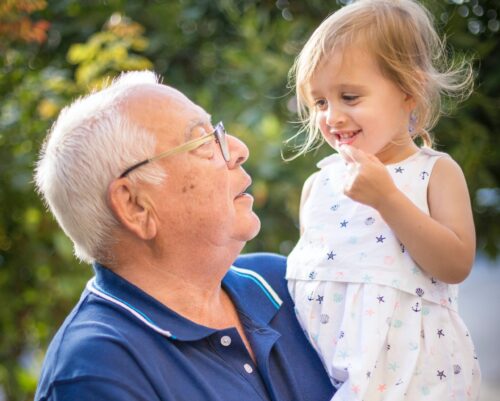By phone or email
To speak to an adviser, please call our free and confidential advice line 0808 801 0366 (Monday to Friday 9.30am to 3pm, excluding Bank Holidays). Or you can ask us a question via email using our advice enquiry form.
Are you a parent, kinship carer relative or friend of a child who is involved with, or who needs the help of, children’s services in England? We can help you understand processes and options when social workers or courts are making decisions about your child’s welfare.
Our advice service is free, independent and confidential.

To speak to an adviser, please call our free and confidential advice line 0808 801 0366 (Monday to Friday 9.30am to 3pm, excluding Bank Holidays). Or you can ask us a question via email using our advice enquiry form.
Our online advice forums are an anonymous space where parents and kinship carers (also known as family and friends carers) can get legal and practical advice, build a support network and learn from other people’s experiences.
Our get help and advice section has template letters, advice sheets and resources about legal and social care processes. On Monday and Thursday afternoons, you can use our webchat service to chat online to an adviser.


Kinship care is any situation in which a child is being raised in the care of a friend or family member who is not their parent. The arrangement may be temporary or longer term. Kinship carers can be grandparents, uncles, aunts, older brothers and sisters or other adults who have a connection to the child, such as neighbours or family friends. Kinship carers are sometimes called family and friends carers.
There are more children in kinship care than there are adopted or in the care system. There are many different reasons that a child may be cared for by a family member or friend.
These pages provide an easy-to-follow guide to kinship care in England. They are for kinship carers and anyone thinking about becoming a kinship carer. They include information on the different types of kinship care arrangement and the law that relates to them.
Watch a vlog with our chief executive explaining more about kinship care.
These first four FAQs explain some core information about kinship care and kinship carers.

Most kinship carers are grandparents raising grandchildren. Some are brothers and sisters who are raising their younger siblings. Kinship carers are also aunts, uncles, cousins, stepparents, close family friends and others.

There are many reasons why children live with kinship carers. It may be due to parental ill health, disability, imprisonment, or death. Some children may not be able to remain at home because they have suffered significant harm. Or are likely to. This could, for example, be due to domestic abuse.

Some children go to live with a kinship carer on a temporary basis. This may be because a parent is struggling and needs time or support to address their difficulties. Or it may be because of a crisis that will quickly resolve. But for some children, kinship care will be a long term and permanent plan.

This means it is very important for families to have the right information and advice about kinship care. Our Types of kinship care arrangement section explains more about this.
The six FAQs below explain how kinship care options can be explored for children.

This means it is very important for families to have the right information and advice about kinship care.
1. Private family arrangements
A private family arrangement is where a child is cared for by a close relative and:
2. Private fostering
Someone who is not a close relative of the child and is not already approved as a foster carer looks after the child for 28 days or more (as per section 66(1)(a) and (b) of the Children Act 1989).
3. ‘Lives with’ child arrangements order
Under this court order the child will live with the kinship carer named in the order and the carer will share parental responsibility with the parents.
4. Special guardianship
5. Kinship foster care
Sometimes a kinship care arrangement involves a child becoming looked after by children’s services. But with the child living with a relative or friend who becomes a foster carer for them. This might be under a care order, or under a voluntary arrangement. The carer is known as a kinship foster carer.
6. Adoption
Adoption is unusual in kinship care arrangements because it changes the legal relationship with the child’s parents. They legally cease to be the child’s parents.
7. What is a testamentary guardian?
A testamentary guardian is someone who is:
The appointment will often be in a written Will, but not always.
For an overview of all the types of arrangement and the differences between them open or download our Types of kinship care arrangement – quick reference table.
If you haven’t yet found the information you are looking for about kinship care, you may find these six questions useful.

When a relative or friend takes on the care of a child who cannot live with their parents, they may need financial information and support. This includes what benefits they can claim. Someone thinking about becoming a kinship carer may want information about benefits as part of deciding what type of kinship care arrangement will be best. Our advice sheet 2h) Welfare benefits for kinship carers is a good place to start. It provides a detailed introduction to benefits and tax credits in England and how to access these. We have also prepared some quick reference tables explaining the types of benefit and tax credits available in different types of kinship care arrangement – these tables are available to open or download here.

The Adoption and Special Guardianship Support Fund pays for a range of therapeutic support for adopted children and their adoptive family. Since 2016 it can also be used to pay for therapeutic support for children cared for by special guardians who are eligible. The fund is continuing until the end of March 2026.
Who is eligible?
Below we explain three different situations in which someone is eligible to be assessed for therapeutic services paid for by the Adoption and Special Guardianship Support Fund.
I can answer ‘yes’ to all three of these statements:
If a child left care under a ‘lives with’ child arrangements order (CAO) for the purpose of you being assessed as a special guardian for them then, that child:
I have a special guardianship order (SGO) but:
How can I get help?
You will need to have an assessment of your family’s support needs by a social worker from the children’s services department in your local authority (council).
Where the assessment identifies that the therapeutic services funded by the Adoption and Special Guardianship Support Fund would be beneficial to your family, the local authority will apply to the Fund on your behalf. The Fund will then release funding to the local authority. The local authority will then use the funding to commission and pay the agreed provider of services.
There is a Fair Access Limit of £3,000 per child – this limit is the maximum amount of money available from the Adoption and Special Guardianship Support Fund per child. The costs of funding specialist assessments and therapy now both fall under the £3,000 Fair Access Limit– there is no longer a separate allowance available to fund specialist assessments. Funding of up to £2,500 for specialist assessments will continue to be available, but this will come from the overall £3,000 limit. Further information about this can be found here.
The local authority social worker is expected to talk to you about who can provide the types of service that you need and which provider you would prefer.
How does the local authority get funds?
The social worker’s assessment and recommendations for services must be approved by a designated manager in the local authority. Designated means the manager who has responsibility for accessing the fund.
Once the social worker’s assessment and recommendations have been approved , the social worker applies to the Adoption and Special Guardianship Support Fund for funding.
All identifying information about you must be excluded from the application form. This is because it is information that is confidential between you and the local authority.
The Adoption and Special Guardianship Support Fund notifies the social worker who applied for funding (within 10 working days) and the social worker should then let you know the decision. If the application is successful, the Adoption and Special Guardianship Support Fund sends the money to the local authority who pays the provider for the agreed services.
You can then get the service you and your family need. Please note that there may be waiting lists for some local services.
What type of services can the Adoption and Special Guardianship Support Fund provide money for?
To achieve these outcomes the Fund will pay for therapeutic support and services including but not restricted to those listed below. Some of the services may be provided through the NHS, some by the local authority and others by independent providers. The exact range of services available will vary for each local authority, depending upon which services are available locally that meet relevant quality standards.
The Adoption and Special Guardianship Support Fund now runs until the end of March 2026. Will the support I receive end then?
The Department for Education has said the Adoption and Special Guardianship Support Fund will continue until the end of March 2026. The Adoption and Special Guardianship Support Fund only consider funding applications where the specialist assessment and therapy will be fully completed before the end of March 2026.
How do I find out who to contact in my local authority to get an assessment?
Unfortunately, your local authority’s website may not have clear information about this. As a first step, try asking the social worker who has worked with you to get the SGO.
In some local authorities the Adoption and Permanence Team in children’s services lead on getting the Adoption and Special Guardianship Support Fund for Special Guardians. In other local authorities it is the Family and Friends Care designated officer. And other local authorities may have their own arrangements.
Where we have the information on who to contact, we have provided links on our website here.
Where we don’t have the information, we have provided a template letter for you to send to the Director of Children’s Services of your local authority to request an assessment. They should pass your letter on to the person with responsibility for these assessments in your local authority, and they should reply to you to tell you who they have asked to deal with your request.
I am sure I am eligible, but my local authority says I am not - so they won’t do an assessment. What can I do?
The eligibility criteria are quite complicated. The Adoption and Special Guardianship Support Fund is only available to children who were previously looked after in the care system.
There is more detailed information about the eligibility criteria in the Adoption and Special Guardianship Support Fund website.
If you have checked the eligibility criteria and believe you are eligible then you could complain to your local authority. For information about how to do this see our Complaints page.
Why won’t the Adoption and Special Guardianship Support Fund pay for the basics?
The Adoption and Special Guardianship Support Fund is for therapeutic type support. But you should have also been assessed for a special guardianship allowance. If you are having problems with getting that allowance, or are having deductions made from it that should not be made (e.g. child benefit) you should complain to children’s services. Letter 6 on our Top tips and templates page can help you do this. .
There are also a range of services, not funded by the Adoption and Special Guardianship Support Fund, that the local authority must ensure are available to Special Guardians. See our advice sheet 2e) Practical and financial support for special guardians for more information and advice about this. And if these services are not available in your local authority area you could complain using our template letter here.
You can also look at our Kinship Carers Forum to see how others in similar situations are coping and register to start a thread yourself.
I haven’t got the special guardianship order yet. But it is on its way. Can I have the funding now?
The local authority can apply before the SGO is made, provided that all the eligibility criteria are met. However, funds will only be released to pay for agreed services when the SGO is in place.
I’ve had an assessment. But the social worker says we don’t need funded local services. What are my options?
The current range of services that might be available to you in your local authority area may be limited. The local authority must provide a range of services to meet the needs of Special Guardians. We have provided a template letter to help you to complain and to challenge the services available locally. Make sure you put all your questions in writing and keep copies of your questions and any responses you get. If this does not work, you could consider making a complaint. For more information see our Complaints page.
You can also look at our Kinship Carers Forum to see how others in similar situations are coping. Or to register to start a thread yourself.
The child I care for under a special guardianship order was not born in England. Can I still get the Adoption and Special Guardianship Support Fund?
Yes, if you meet the eligibility criteria and you are living in England.

Your donation will help more families access expert legal advice and support from Family Rights Group.
Donate Now